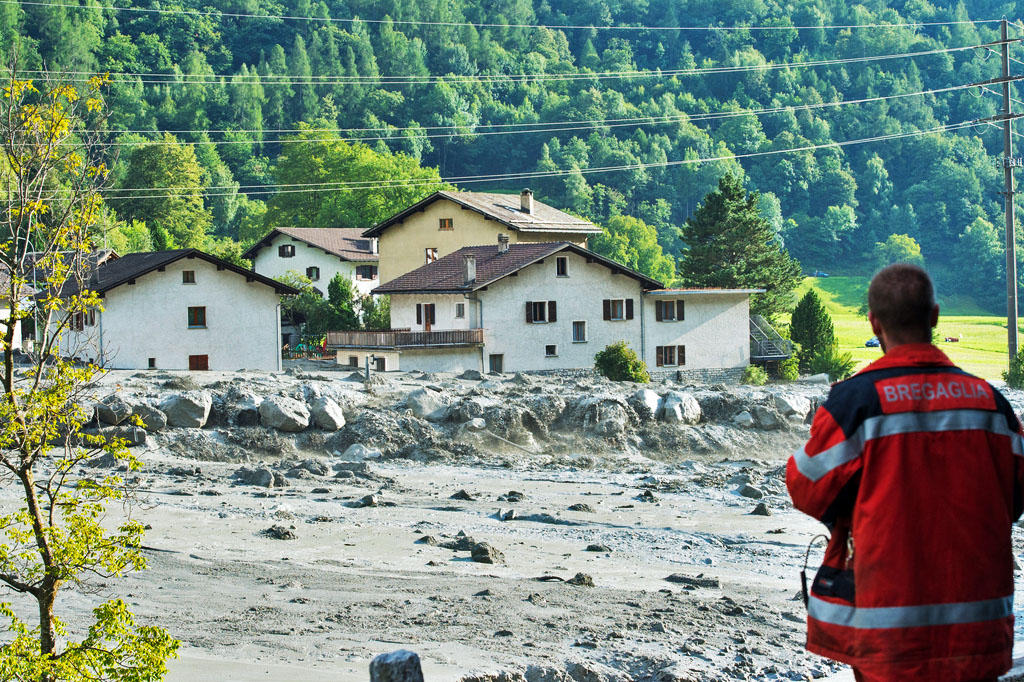Life goes on a year after Bondo’s deadly mudslide
A year ago, three million cubic metres of rock crashed down from the Piz Cengalo in eastern Switzerland, triggering a landslide in the village of Bondo. Another rockslide may be brewing.
Eight hikers were killed and several houses destroyed in the disaster. The bodies were never found. Now, Piz Cengalo in Bergell, canton Graubünden, is rumbling again and there are still a million cubic metres of loose material on the slopes above Bondo.
Movements were detected in July. And last week, sirens were sounded in the village, roads were closed and residents received alerts via text message. Since the last disaster, the monitoring system has been extended to better protect the public. Radars and cameras monitor the mountain constantly.
When the sirens are sounded, residents understand that they have to go upstairs and wait for further information.
The rescue operation
A year ago, the entire village had to be evacuated after the avalanche of mud and stone, the biggest landslide in Switzerland in about 100 years. The hikers who lost their lives were from Switzerland, Germany and Austria. The homes of ten people were totally crushed and 147 residents had to be brought to safety.
The following photos were taken from August-November 2017:
The Swiss army helped with the rescue and clean-up operation and, later, most of the residents were able to return home, helped by donations of CHF14 million ($14.2 million) from the public.
Defence Minister Guy Parmelin recently visited the region with Graubünden parliamentarian Christian Rathgeb. Parmelin thanked the Swiss for their generous support in the wake of the disaster, and said, “Our militia system has once again proved itself”.
Although the locals have tried to return to normal, the disaster has left scars. And there’s a chance that it could happen all over again.
(SRF/swissinfo.ch)












You can find an overview of ongoing debates with our journalists here . Please join us!
If you want to start a conversation about a topic raised in this article or want to report factual errors, email us at english@swissinfo.ch.